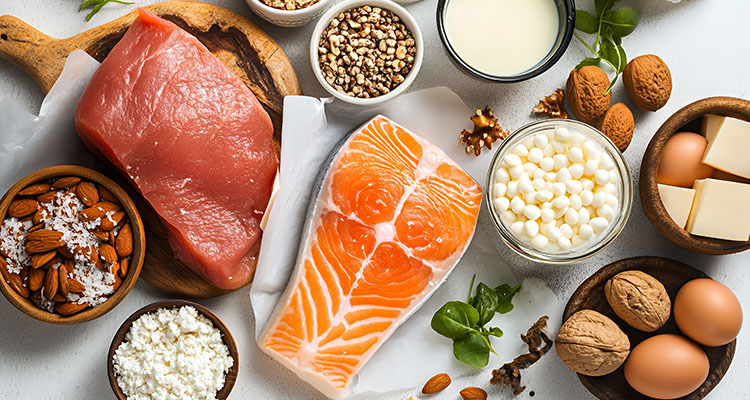Introduction
Your gut is more than just your stomach—it’s the control center for your digestion, immune system, and even your mood. If you’ve been feeling off lately, tired, bloated, or just not your best, your gut might be trying to tell you something. In this article, we’ll explore the gut health essentials you need to feel better, boost your energy, and support your overall wellness.
Get ready to learn about good bacteria, smart food choices, and simple habits that can transform your gut—and your life.
Why Gut Health Matters
Your gut, or gastrointestinal system, is home to trillions of microorganisms that play a vital role in your health. This “gut microbiome” helps digest food, absorb nutrients, and even produce mood-boosting chemicals like serotonin.
When your gut is out of balance—whether from stress, poor diet, or medication—it can lead to issues like bloating, fatigue, food sensitivities, or frequent illness. That’s why gut health essentials should be part of everyone’s wellness routine.
Taking care of your gut isn’t just about digestion—it’s about supporting your body from the inside out.
Fiber: The Gut’s Favorite Fuel
One of the easiest ways to improve your gut health is by eating more fiber. Fiber feeds the good bacteria in your gut, helping them thrive.
Aim for a mix of soluble and insoluble fiber from fruits, vegetables, legumes, and whole grains. Foods like oats, apples, lentils, broccoli, and chia seeds are excellent options.
Not only does fiber promote regular digestion, but it also helps regulate blood sugar, support weight loss, and reduce inflammation. When adding fiber, increase your intake slowly and drink plenty of water to avoid discomfort.
Fiber truly is one of the top gut health essentials you don’t want to skip.
Probiotics and Prebiotics: Your Gut’s Dynamic Duo
You’ve probably heard of probiotics—the friendly bacteria found in fermented foods and supplements. But prebiotics are just as important. They act as food for probiotics, helping them grow and flourish.
Include probiotic-rich foods like yogurt, kefir, sauerkraut, kimchi, and miso in your meals. For prebiotics, try bananas, garlic, onions, asparagus, and oats.
Together, these two work to improve digestion, reduce bloating, and even boost immunity. Adding them regularly to your diet is a smart move for anyone wanting to support long-term gut health.
Watch Out for Gut Disruptors
Just as some foods help your gut, others can harm it. Processed foods, added sugars, and artificial sweeteners can disrupt your gut microbiome and cause inflammation.
Limit intake of sugary snacks, sodas, fast food, and excessive alcohol. Certain medications, like antibiotics, can also wipe out good gut bacteria, so always follow your doctor’s advice and consider adding probiotics during or after treatment.
Reading food labels and choosing whole, minimally processed ingredients can make a huge difference in how your gut feels.
Hydration, Movement, and Stress Management
Gut health isn’t only about what you eat. Lifestyle plays a big role, too.
- Stay hydrated: Water supports digestion and nutrient absorption.
- Get moving: Regular exercise promotes healthy gut motility and balances your microbiome.
- Manage stress: Chronic stress negatively impacts gut health and may lead to conditions like IBS or leaky gut.
Mindful practices like yoga, meditation, and even walking can help calm your nervous system and support a healthier gut-brain connection. Remember, a calm mind leads to a calmer gut.
When to Consider a Gut Reset
Sometimes, despite your best efforts, your gut needs a little extra support. If you’re experiencing persistent digestive issues, fatigue, or skin problems, it may be time for a gut reset.
This could involve an elimination diet to identify food sensitivities, taking targeted supplements, or working with a nutritionist. A short-term reset can rebalance your gut and help you discover what works best for your body.
It’s always smart to listen to your body—and seek professional help if symptoms continue.
Conclusion
When it comes to feeling your best, few things are as powerful as a healthy gut. With the right foods, habits, and awareness, you can support your body in ways that go far beyond digestion.
From eating fiber-rich foods to managing stress, these gut health essentials can help you build a solid foundation for wellness. Start small, stay consistent, and notice the difference in how you feel—inside and out.
FAQs
What are the best foods for gut health?
Fiber-rich fruits and vegetables, fermented foods like yogurt and kimchi, and prebiotic-rich foods like garlic are excellent.
How can I tell if my gut is unhealthy?
Common signs include bloating, fatigue, constipation, diarrhea, food cravings, or frequent illness.
Are probiotics really necessary?
They can be helpful, especially after antibiotics or digestive upset, but it’s best to get them from food first.
Can stress really affect my gut?
Yes! Stress can disrupt digestion and trigger symptoms like gas, bloating, and stomach pain.
How long does it take to improve gut health?
You may notice improvements in a few days to weeks with consistent, gut-friendly habits.

